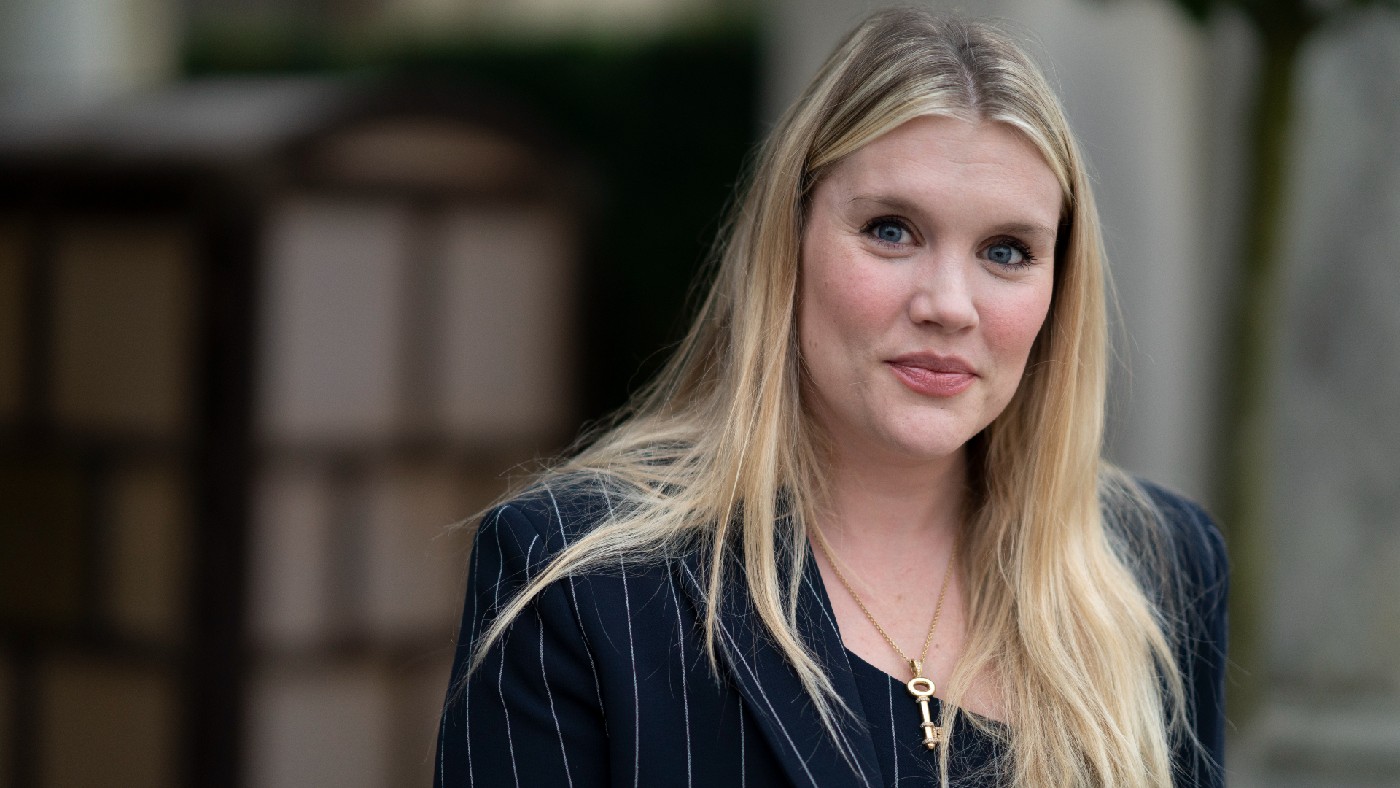Emerald Fennell: my six best books
The actress and writer chooses her favourite books, from Jane Austen to Nick Cave

A free daily email with the biggest news stories of the day – and the best features from TheWeek.com
You are now subscribed
Your newsletter sign-up was successful
Simon Thurley is an architectural historian and former head of English Heritage. His latest book, Palaces of Revolution: Life, Death and Art at the Stuart Court (William Collins £25), is out now.
Life in the English Country House, a Social and Architectural History by Mark Girouard (1978)
One of the most influential history books of my lifetime, which turned the study of buildings away from questions of style to ask how people used them. It is still in print after more than 40 years, which is an achievement in itself. Yale University Press £25
The Week
Escape your echo chamber. Get the facts behind the news, plus analysis from multiple perspectives.

Sign up for The Week's Free Newsletters
From our morning news briefing to a weekly Good News Newsletter, get the best of The Week delivered directly to your inbox.
From our morning news briefing to a weekly Good News Newsletter, get the best of The Week delivered directly to your inbox.
God’s Architect: Pugin and the Building of Romantic Britain by Rosemary Hill (2007)
This is the best biography of a single architect that I know, and an authoritative and witty portrait of the mentality of his age. It would be hard to make up the life of Augustus Pugin, so extraordinary was it, but luckily Hill did not have to, and the truth is stranger than fiction. Penguin £19.99
Henry “Chips” Channon: The Diaries (Volume 1) 1918-38 edited by Simon Heffer (2021)
On my bedside right now is the 800-page-plus intimate thoughts of the social butterfly and politician Henry Channon. I’m not sure I like the man, but his honesty makes for compelling reading. I’m now awaiting volume two, just published. Hutchinson £35
A free daily email with the biggest news stories of the day – and the best features from TheWeek.com
The Last Royal Rebel by Anna Keay (2016)
I admit that I wept at the tragic end of this biography, which brings to life the Restoration court and appalling shenanigans of the bigoted Duke of York, the future King James II. James, Duke of Monmouth, the beautiful and clever bastard son of Charles II, so nearly was a great national hero – but came to a grisly end. Bloomsbury £10.99
David Copperfield by Charles Dickens (1849)
I think I have now read all of Dickens’s novels and this is not only his best, but I think the greatest work of Victorian fiction. It combines gripping storytelling, which you just don’t want to end, along with brilliant social observation. Penguin £7.99
-
 The Week contest: AI bellyaching
The Week contest: AI bellyachingPuzzles and Quizzes
-
 Political cartoons for February 18
Political cartoons for February 18Cartoons Wednesday’s political cartoons include the DOW, human replacement, and more
-
 The best music tours to book in 2026
The best music tours to book in 2026The Week Recommends Must-see live shows to catch this year from Lily Allen to Florence + The Machine
-
 6 exquisite homes with vast acreage
6 exquisite homes with vast acreageFeature Featuring an off-the-grid contemporary home in New Mexico and lakefront farmhouse in Massachusetts
-
 Film reviews: ‘Wuthering Heights,’ ‘Good Luck, Have Fun, Don’t Die,’ and ‘Sirat’
Film reviews: ‘Wuthering Heights,’ ‘Good Luck, Have Fun, Don’t Die,’ and ‘Sirat’Feature An inconvenient love torments a would-be couple, a gonzo time traveler seeks to save humanity from AI, and a father’s desperate search goes deeply sideways
-
 A thrilling foodie city in northern Japan
A thrilling foodie city in northern JapanThe Week Recommends The food scene here is ‘unspoilt’ and ‘fun’
-
 Tourangelle-style pork with prunes recipe
Tourangelle-style pork with prunes recipeThe Week Recommends This traditional, rustic dish is a French classic
-
 Samurai: a ‘blockbuster’ display of Japan’s legendary warriors
Samurai: a ‘blockbuster’ display of Japan’s legendary warriorsThe Week Recommends British Museum show offers a ‘scintillating journey’ through ‘a world of gore, power and artistic beauty’
-
 BMW iX3: a ‘revolution’ for the German car brand
BMW iX3: a ‘revolution’ for the German car brandThe Week Recommends The electric SUV promises a ‘great balance between ride comfort and driving fun’
-
 Arcadia: Tom Stoppard’s ‘masterpiece’ makes a ‘triumphant’ return
Arcadia: Tom Stoppard’s ‘masterpiece’ makes a ‘triumphant’ returnThe Week Recommends Carrie Cracknell’s revival at the Old Vic ‘grips like a thriller’
-
 My Father’s Shadow: a ‘magically nimble’ love letter to Lagos
My Father’s Shadow: a ‘magically nimble’ love letter to LagosThe Week Recommends Akinola Davies Jr’s touching and ‘tender’ tale of two brothers in 1990s Nigeria